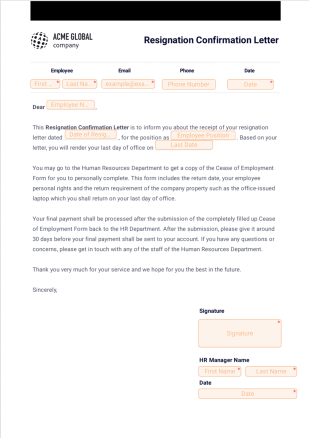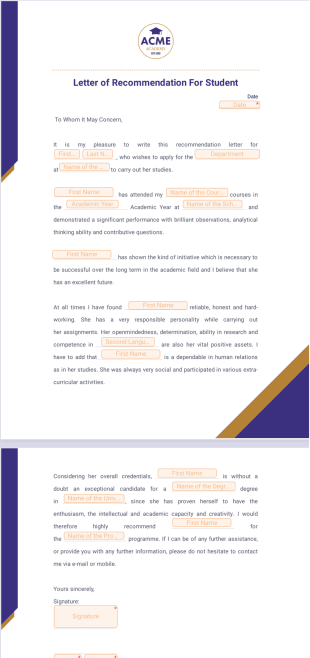Notarized Letter Of Authorization FAQs
1) What is the purpose of a notarized letter of authorization?
A notarized letter of authorization is a legally recognized document that formalizes a request or action. When a letter is notarized, it means a notary public, or a public official authorized to perform legal authorization, has verified the identities of the signatories and witnessed their signatures. A notarized letter confirms that the individuals signing the letter are who they claim to be and that they’re voluntarily providing their consent for validation.
2) How do I write a notarized letter of authorization?
You can simplify the writing process for a notarized letter of authorization with a free template from Jotform. Navigate to the sample notarized letter of authorization template, click Use Template, and click Edit Template on the right to customize it to your needs. When you’re finished, it will be ready to fill out, share, print, and sign. Many notary services are now available digitally, so the involved parties can send and sign the document online in seconds.
3) Who are the parties to a notarized letter of authorization?
The parties in a notarized letter of authorization are those who are seeking authorization (such as a grantor and grantee) and the notary public, who is providing legal verification of the letter’s legitimacy.
In some cases, additional parties may be involved to help meet requirements. For example, if the letter is related to a financial transaction, a representative of the financial institution may need to be present to provide an extra layer of verification.
4) How can I obtain a notarized letter of authorization template?
You can find notarized letter of authorization templates online, but be aware that not all templates are created equal! Depending on the tools and operating system you use, you may have trouble editing or customizing a template that you download online. Jotform solves that problem by allowing you to edit and send right from our platform with our drag-and-drop PDF Editor — no coding required!
5) Are there any specific requirements for a notarized letter of authorization?
Every notarized letter of authorization must list the names of the requesting parties and the reason for authorization. The document must also contain the signatures of each party as well as the notary public’s signature to confirm that they witnessed and verified the signatures.
6) Can a notarized letter of authorization be used for any type of transaction?
Notarized letters of authorization are useful for many types of transactions, including authority delegations, medical consent forms, financial transactions, child custody requests, declarations of marriage and domestic partnership, and more. Keep in mind that not every transaction will require notarization, so it’s important to check the requirements for your situation beforehand.
7) Who can serve as a notary for the letter of authorization?
Typically, any public official who has been authorized to perform notarial acts can serve as a notary. While the qualifications to become a notary public vary depending on jurisdiction, occasionally lawyers, attorneys, court officials, or bank representatives can act as notaries in place of or alongside recognized notary officials. However, you should always confirm this with legal institutions or officials.






